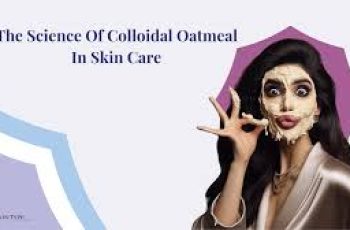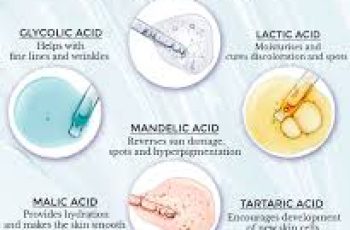Can peptides be used with niacinamide?
The beauty industry is constantly evolving, which means there’s always something new to try! These can be trending ingredients that have just hit the market and are improving everyone’s complexion, or others that have been around for a while and are just getting the acclaim they deserve!
When it comes to the ingredients peptides and niacinamide, all of which have impressive skin benefits, it’s no wonder the question of “can peptides be used with niacinamide?” comes up time and time again. If you’re unsure what peptides are and how they benefit the skin, check out our blog post.
Can’t niacinamide and peptides be mixed together?
Yes, you can! Niacinamide and peptides are considered completely safe to use together. Since niacinamide is suitable for nearly all skin types, even mildly sensitive skin, it can work effectively alongside other skincare ingredients. Niacinamide’s moisturizing properties allow it to draw moisture around the skin and bind it to its natural protective barrier. The skin’s microbiome can remain fully functional and at its healthiest, allowing it to protect itself from free radicals such as UV rays, pollution, and other environmental influences.
If you want a better understanding of what not to mix with niacinamide, you can check out our blog for more information.
Can I use Niacinamide with Copper Peptides?
Yes, you can. Copper peptides provide the skin with impressive antioxidant benefits, ensuring it is protected from free radical damage while repairing any damage that has already occurred. They stimulate the production of elastin and collagen in the skin, helping to smooth the complexion and visibly reduce fine lines and wrinkles. An added benefit of copper peptides is that wounds heal faster, and combining it with Niacinamide yields impressive results. Niacinamide is widely regarded as a powerful moisturizing ingredient that can be combined with many other effective skin care ingredients (except Vitamin C).
Copper peptides are known to increase blood flow, which is why they are so effective in healing wounds and other skin injuries. A common side effect is that they increase facial redness or possible flushing, which can cause severe irritation if you are already using exfoliating ingredients.
I have discussed in previous blog posts the importance of doing a 24-hour patch test before applying a new ingredient or formula to your face.
Which came first, peptides or Niacinamide?
The general rule of thumb when using skin care is to start with the thinnest consistency and use the thickest consistency last. This helps us all have a clearer understanding of how to apply skin care. Another factor many of us don’t take into account is that our skin has a 24-hour circadian rhythm. This basically means that our skin’s needs change depending on the time of day.
For example, in the morning it needs protection from free radicals from UV rays, pollution, and environmental aggressors. When night falls, the skin focuses on repairing and regenerating itself. Many people opt for higher potency formulas because they have limited exposure to free radicals and the skin has limited time to regenerate while sleeping.
Are peptides better than niacinamide?
Yes and no, as each ingredient has different benefits for the skin. Peptides and niacinamide each target different skin concerns and can improve complexion overall when used alone or layered together.
Here are some examples of issues these ingredients can help with:
Choose Niacinamide if you have:
Hyperpigmentation, dark spots, sun damage, and post-acne scars
Mild acne and breakouts
Redness and blotchiness, such as rosacea
The first signs of aging, such as fine lines, wrinkles, and crow’s feet
Choose Peptides if you have:
Skin loses firmness and signs of sagging
Deep, visible wrinkles on the surface of the skin
Luckily, we can combine all of these powerful ingredients and use them twice a day, morning and night.
Which is better, ceramides or peptides?
There is no right or wrong answer to this question, as both offer unique and effective benefits to the skin. Whether you use them together or separately, you’ll be surprised at how your skin looks and feels.
Skincare Benefits of Ceramides
Skin’s surface is hydrated and moisturized
Skin barrier remains fully functional
The overall appearance of the skin is improved
Skin becomes firmer
Skin protects itself from free radicals
By providing extra hydration and preventing further damage to the skin, ceramides not only produce dramatic results, but also improve skin health. They also teach the skin to produce its own ceramides. The result is a smoother, healthier, more youthful complexion.
Skincare Benefits of Peptides
Improve skin tone
Reduce signs of aging like fine lines and wrinkles
Restore proteins in the lower layers of the skin
Provide cell communication benefits and boost collagen production
Help maintain a smooth, healthy skin surface
As mentioned earlier, there are a variety of peptides available in skincare formulas, each with its own unique benefits. The good thing is, you can actually use both ceramides and peptides together to dramatically improve your skin.
Do peptides really work?
The short answer is: yes, but only if used correctly. Since peptides are so small in molecular size, they can penetrate to a much deeper level. While peptides benefit the skin in the many ways I’ve already mentioned, they tend to break down quickly. That’s why it’s important to find the best products to ensure you reap the benefits of using peptides in your skincare routine. For example, if you opt for a lightweight serum, the peptides won’t have to compete with the barrier of a thick cream that sits on the outer surface of the skin. If you’re really serious about your skincare routine, you can combine active peptide levels with other powerful skincare ingredients like niacinamide to improve your skin’s appearance across the board.
So you can learn more about using peptides with niacinamide here As always, don’t forget to follow Procoal on Instagram if you have any questions.
DQH Knowledge drop: In your 20s, your skin cell turnover decreases. (Cell turnover is a key component in keeping your skin youthful.) You know what else slows down? Your collagen production. Starting in your 20s, collagen decreases by about 1 percent per year. Should you want to prevent fine lines and wrinkles, start by eliminating behaviors that contribute to premature aging. “If it’s bad for you, it’s bad for your skin,” says dermatologist Michel Somenek.
“Cigarette smoking reduces blood flow to the skin and causes premature wrinkling and a dull skin texture. Making the repeated pursed motion to inhale can also cause smoker’s lines. Alcohol and recreational drugs are toxins for the skin that damage its cellular structure and DNA,” Somenek tells us. “The faster you eliminate vices while you are young, the better chance your skin and body have to recuperate.” Also, adopting an anti-aging routine in your 20s is key. After all, the best offense is a good defense. We spoke to Somenek and experts Joshua Ross and Audrey Kunin to find out more.
Keep reading for the best anti-aging products for your 20s, according to skincare professionals.
Sunscreen
“We all know that the sun is the number one cause of skin aging and starting the prevention in your 20s is very important,” Ross says. “The majority of your sun damage won’t start to appear until you’re in your 30s, so don’t wait until you see it surface or you’ll be behind the curve. Stay ahead of it with a good-quality zinc-based sunscreen worn daily.”
Farmacy Green Defense Daily Mineral Sunscreen
An invisible sunscreen with SPF 30, plus botanical extracts meant to protect skin with tons of antioxidants. Bonus: It’s clean and fine to use under makeup.
Bareminerals Complexion Rescue™ Tinted Moisturizer Broad Spectrum SPF 30
Although we recommend you use your SPF and moisturizer separately, we also understand moments when you don’t have time or energy for that extra step. For those times, this bareMinerals moisturizer is a great thing to have on hand.
Vitamin C Serum
“A great introduction to anti-aging is to start with a vitamin C serum in your morning skincare routine,” Ross says. “It’s a powerful antioxidant that will neutralize free radicals and brighten the skin.” He adds that it’s a great way to counteract the effects of the sun’s harmful rays, which, as previously mentioned, are among the biggest causes of premature aging.
Drunk Elephant C-Firma™ Vitamin C Day Serum
The Drunk Elephant C-Firma is a lightweight serum that promises to give skin a glow by combining the brightening powers of vitamin C with ferulic acid, l-ascorbic acid, and vitamin E. The included sodium hyaluronate is meant to replace hydration loss, so you shouldn’t have to deal with any irritation.
Sunday Riley C.E.O. Rapid Flash Brightening Serum
This potent serum is jam-packed with vitamin C (15 percent, to be exact), which means it’s a potential superstar at both brightening skin and dousing it in antioxidants.
Peptides
Using peptides on your skin has many benefits, says Somenek. “The skin barrier is what defends the body against pollution, UV rays, bacteria, and toxins. It can be damaged by several everyday factors. Using topical peptides aids in building a stronger barrier,” he says. “Peptides comprise elastic fibers, which are a type of protein. These fibers help to make skin appear taut and firm. Peptides can also help repair damaged skin, relieve inflammation, and even out skin tone. Some peptides can kill acne-causing bacteria that is common in 20-somethings.”
Kunin agrees, saying, “Peptides are an excellent entry point for supporting collagen.” She recommends looking for face and eye treatments that contain these collagen-boosting powerhouses.
Charlotte Tilbury Magic Eye Rescue Cream
This Charlotte Tilbury super-emollient eye cream has a base of coconut oil and shea butter (read: it’s incredibly hydrating). Botanicals plus peptides are meant to help reduce dark circles and boost collagen, respectively.
This creamy moisturizer serves up potent collagen-boosting peptides and pycnogenol, and antioxidant-rich vitamin C. “Instead of sitting on top of the skin, peptides penetrate the outer layer so they go deep. The ‘signals’ they send tell the cells to produce elastin and collagen, which are needed for youthful-looking skin,” explains Somenek.
At-Home Peel Pads
Remember that skin cell turnover fiasco we talked about earlier? One way to help support it is by exfoliating. “Exfoliation is important to help keep skin fresh and luminous,” Kunin says. She recommends using at-home peel pads as an easy and effective way to exfoliate.
“The goal in your 20s is to fight the slowing pace of cell turnover. It is wise to use products that gently exfoliate, yet still remove oil and other impurities. Products that have Alpha Hydroxy Acids (AHA) or Beta Hydroxy Acids (BHA) are a good choice.”
According to Somenek, you should only exfoliate two to three times a week. “People of all ages are guilty of over-exfoliating and that can be too much of a good thing,” he says.
Dermadoctor Kakadu C Intensive Vitamin C Peel Pad
A few swipes of this Derma Doctor powerful peel pad promise to leave your skin glowing and smooth, thanks to the seven (yes, seven) types of chemical exfoliants, including AHA and BHA. It also contains vitamin C via Kakadu plum extract for added brightening and antioxidant protection.
KEY INGREDIENTS Kakadu plum extract is sourced from the Kakadu plum, a fruit grown in northern Australia. It contains vitamin C, which restores the skin’s natural barrier, increases collagen production, and soothes irritation.
Dr. Dennis Gross Skincare Alpha Beta® Universal Daily Peel Pads
These are the gold standard of peel pads, with a cult following and over 900 five-star reviews on Sephora. They’re easy to use and contain a blend of anti-aging exfoliating acids.
Emollient Night Cream
“In your 20s, you need to start upping the hydration in your skincare routine. You may have been cautious of over-moisturizing because of acne in your teens, but as you enter your 20s, your skin transitions and becomes drier,” Ross says. “I recommend an emollient night cream added into your evening skincare regimen.”
“Twenty-somethings need to make sure that they are not using creams that will clog their pores and cause excess oil production,” says Somenek. Opt for non-comedogenic products.
Cerave Skin Renewing Night Cream
One great choice is the CeraVe Skin Renewing Night Cream, which is a non-comedogenic night cream that leaves skin soft and glowy. It combines the moisturizing powers of ceramides and hyaluronic acid.
RoC Retinol Correxion Max Hydration Creme
“The best night cream ingredients contain retinol, benzoyl peroxide, and/or salicylic acid or hyaluronic acid. The goal is to moisturize, yet remove excess oil,” says Somenek. This Roc Retinol Correxion cream fits the bill as it contains both hyaluronic acid and retinol so it promises to moisturize while also being non-comedogenic.



